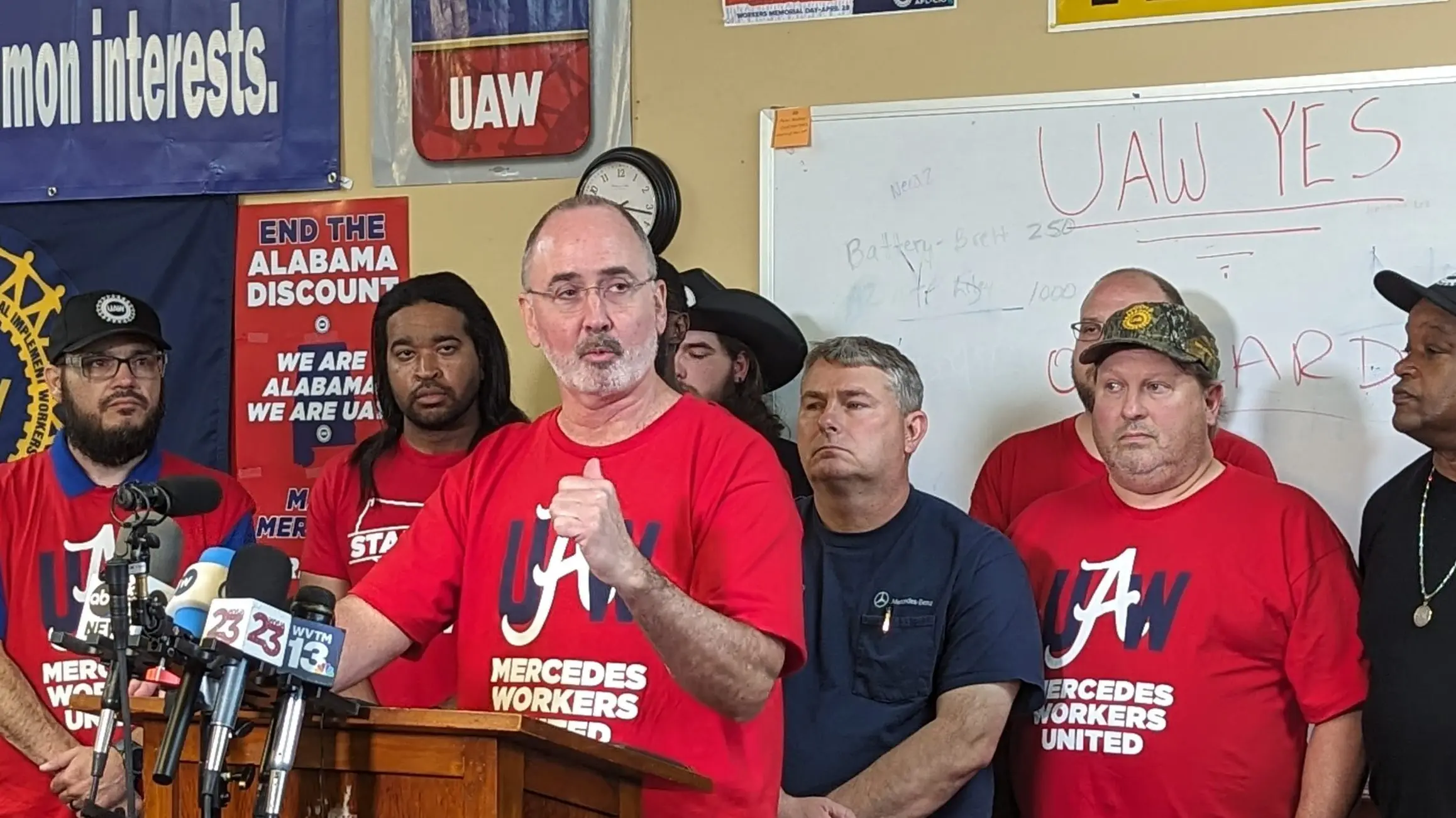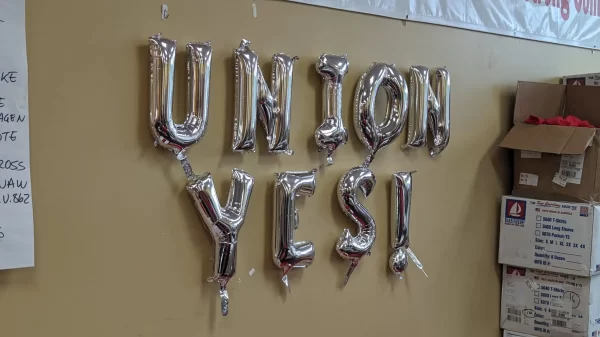|
Getting your Trinity Audio player ready...
|
On Thursday, an email from United Auto Workers president Shawn Fain to the leadership of the Mercedes-Benz General Works Council and IG Metall was posted to X by Luis Feliz Leon of the labor news publication Labor Notes. The General Works Council represents over 100,000 German Mercedes workers and IG Metall is a German metalworkers’ union.
In the email, Fain wrote that Mercedes “management is telling workers that they are unable to follow through on promised increases to wages, benefits, and working conditions because the UAW filed objections to last month’s union election.”
He specifically stated that Rolf Wrona, a MBUSI vice president of human resources, “told several Group Leaders that MBUSI could not pay workers for an upcoming plant shutdown because they were still in ‘status quo.’”
“Status quo refers to a specific legal standard in U.S. labor law that requires unionized employers to notify the union prior to making any changes to wages, benefits, or working conditions and bargain with the union over any proposed changes prior to implementation,” Fain said. “However, MBUSI is not currently unionized, so no status quo condition exists” [emphasis in original].
The UAW confirmed to APR that the email was legitimate and repeated that “managers have been telling workers that they cannot enact any changes because we filed objections to Mercedes’ illegal conduct.”
A Mercedes spokesperson told APR that “MBUSI has worked to communicate fully and accurately with all of its Team Members about the implications of union representation.”
Fain’s email follows the union filing several unfair labor practice charges against Mercedes during the months before the weeklong union election in May, which the UAW lost by a few hundred votes. At the end of May, the UAW also filed a petition asking the National Labor Relations Board to rerun the election.
A Mercedes employee who was involved with the organizing campaign could not confirm to APR that management had blamed the union for changes in policy. However, he had heard other workers say they had been told similar things by management and by HR.
The employee said one of the primary concerns was holiday pay and time off for Independence Day. Before the election, workers were told they would also be able to take July 5 and July 6 off, either by using vacation days or by taking no pay.
Many workers reportedly believed that new CEO Federico Kochlowski would make July 5 and 6 paid days off after the election concluded. When this change failed to happen, they attributed it to the UAW’s challenges, possibly because Mercedes management told them so as some workers have claimed.
Pro-union workers felt they needed to make it clear that the UAW wasn’t responsible for these policies. “We needed to end the lie that the union was preventing workers from getting raises and better benefits,” the employee told APR.
The UAW said “it’s worth noting that the union did not object when Mercedes raised pay and ended two-tier pay in the months leading up to the vote.”
Fain ended his email by asking the General Works Council and IG Metall to “reach out to Mercedes and ask them to immediately correct the record, and to do so in the same way they communicated anti-union messages before the election (group meeting, email, text).”
Editor’s Note: This piece was updated to incorporate information the UAW and Mercedes provided to APR.






















































